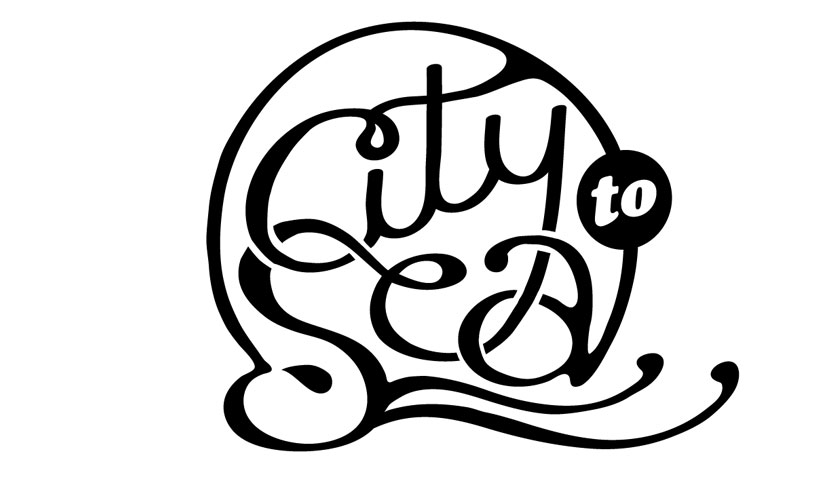Environmental not-for-profit City to Sea and Knowledge Partners, Eunomia, have released a new report, which is the first of its kind in the UK, taking an in-depth look at the single-use packaging problem in the food-to-go sector, which includes businesses like cafes, fast food outlets and coffee chains in the UK. The report identifies a lack of progress towards the Waste Hierarchy and helps the food-to-sector find their way through the plastic-filled maze towards prevention and reuse.
The UK now produces more plastic waste per person than any other major country apart from the USA[1] – this has been fuelled, in part, by the food-to-go sector[2]. Unsurprisingly, packaging from takeaway food and drinks such as disposable coffee cups and takeaway containers are littering our streets, parks, rivers and beaches and are consistently in the top 10 items found on beaches in the UK and Europe[3].
The ‘Food-to-go. Go to go?’ report is based on an analysis of the top 20 (by sales turnover data) UK high street food-to-go operators, peeling back the shiny wrapping to see how their single-use waste is generated and managed. It highlights some key themes where there is room for improvement, along with case studies for where the sector is doing well. Crucially, the report includes a succinct road map charting the steps that business and government need to take to significantly reduce the amount of single use packaging used by the sector.
Since the research was conducted, the global pandemic has turned the sector upside down, sending food-to-go outlets into reverse with many businesses reverting to single use plastic (eat in or take away). City to Sea hope the report will encourage the sector to build back better and urges businesses to be ambitious, committed and transparent about their reduction and reuse targets.
City to Sea and Eunomia will repeat the research again in 2021, this time revealing the individual rankings to the public.
City to Sea’s CEO Rebecca Burgess commented, “To put an end to plastic pollution, we need to turn off the tap when it comes to single-use plastics. The crisis of Covid-19 has left many outlets sandwiched between an environmental and a public health crisis, but it doesn’t have to be this way. Our road map offers a clear pathway for them to protect people, planet and profits. We want to support the sector in making this transition and as such, have decided not to publish the individual rankings this year. Now is the time for the food-to-go sector to step forward and lead the way. In 2021 we will repeat the research & this time share who is leading the way and who is lagging behind, so customers can act.”
What the report says:
The research provided a pre-pandemic snapshot of behaviours in the food-to-go sector. It revealed a great deal of variation across the sector in how single-use packaging is used. At the time the analysis was completed, some businesses were taking small steps, but action was falling well short of legal requirements, environmental best practice and consumer expectations.
The report identifies lack of progress towards the Waste Hierarchy, which is a legally binding principle, focusing on reducing waste and reusing items before considering recycling as an option.
Key findings:
- The legally enshrined Waste Hierarchy[4] is not being followed across the sector in 3 main ways: very little focus on prevention and reuse, continued reliance on incomplete recycling management and infrastructure and no transparent policy in the sector, with few clear and trackable published commitments from businesses.
- Plastic policy is not being taken seriously. 83% of contemporary fast-food outlets and 86% of traditional fast-food outlets had no policies for reducing SUP front of house.
- Free drinking water is still not readily available and 7 out of 20 outlets had plastic water bottles on promotion in their meal deals.
- Reusables are not being rewarded or incentivised in an effective way. Only 50% of the chains that served takeaway coffee offered a discount for a reusable cup, plus one more offering loyalty points.
- Crockery and cutlery is still not being provided for customers eating or drinking in-store. Only 53% of the 15 businesses offering coffee served it in real crockery cups and only 20% of eat-in venues provided reusable cutlery.
- Front of house recycling systems are not being used and most waste is being incinerated. Only 36% of businesses offering coffee had a cup recycling system in place.
Mark Hilton, Head of Sustainable Business at Eunomia commented, “In undertaking this timely research with City to Sea, we dug beneath the headline initiatives and found that even the best brands still have plenty they can do to reduce SUP use, while some in the traditional quick service sector are only just getting started. We want to work with brands, singly or collectively, to make sure that when we repeat the exercise in 2021, we have a very positive and meaningful story to tell.”
